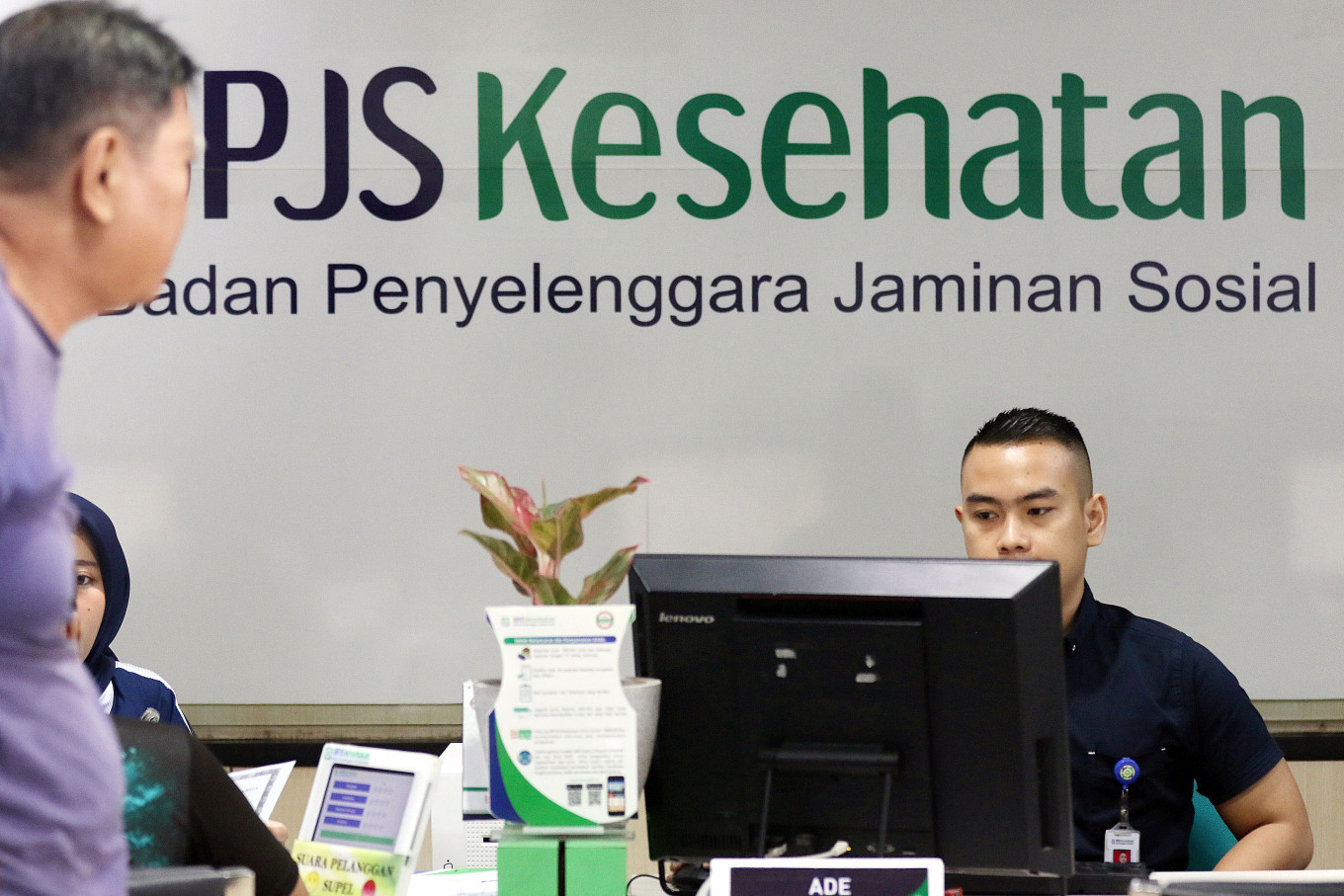Popular Reads
Top Results
Can't find what you're looking for?
View all search resultsPopular Reads
Top Results
Can't find what you're looking for?
View all search resultsCrisis beyond health premiums
Legal technicalities aside, the government must have expected the outrage, coming in the face of hardships under the COVID-19 pandemic.
Change text size
Gift Premium Articles
to Anyone
A
mong the latest controversial government policies is the new hike in premiums for the national health insurance (JKN) program, seen as a blatant defiance of a Supreme Court ruling issued in March that annulled an earlier increase.
In defense of the latest hike issued on May 5, the Health Care and Social Security Agency (BPJS Kesehatan) has said that while the premiums are indeed higher for first- to third-class services, the government has upped its subsidies for the third-class option, thus making the increase “within the corridor” of the court ruling, said BPJS Kesehatan president director Fachmi Idris.
Legal technicalities aside, the government must have expected the outrage, coming in the face of hardships under the COVID-19 pandemic.
Finance Minister Sri Mulyani Indrawati said the government was still protecting the most vulnerable by subsidizing the third-class premium. Meanwhile, all premiums of the JKN help subsidize health coverage for the poorest, thus covering almost 97 million people virtually for free.
Presidential Regulation No. 64/2020 on health insurance will again increase the monthly premium for first-class services to Rp 150,000 (US$10.11) per person from Rp 80,000 starting in July, as well as almost double the cost for second-class services from Rp 51,000 to Rp 100,000.
Third-class premiums were increased from Rp 25,000 to Rp 42,000, but participants would pay only Rp 25,000 per month this year and Rp 35,000 next year as the government is earmarking Rp 3.1 trillion to subsidize the service.
Fachmi said the increase would help plug the BPJS’s deficit, estimated to reach almost Rp 40 trillion this year before the pandemic struck. To save poor families from even more suffering, the government has also skirted rules that effectively ban the BPJS from covering claims for COVID-19 patients on the grounds of a national health emergency.
Even if all of the BPJS’s debts can be paid, achieving a financially sound JKN program will nevertheless remain problematic for Indonesia — now with the world’s largest health coverage for 223 million citizens.
Apart from poor prevention from health problems, another major issue is that most participants pay premiums only when they or family members become sick, according to BPJS data.
The COVID-19 outbreak has further laid bare basic problems to the overstretched health system. This may be the average experience of all affected nations, but for a population of some 273 million, Indonesia still has one hospital bed for each 1,000 people, two intensive care beds for every 100,000 people and four doctors to 10,000.
Amid this scarcity, 25 physicians have died of COVID-19, according to the Indonesian Medical Association (IDI), while many more specialists and nurses died in the thick of overwhelmed hospitals in barely three months.
Beyond this crisis is the dire need to multiply these essential resources by increasing the allocation for health in the state budget from 5 percent, to inch closer to the ideal of 15 percent according to the World Health Organization.
It would also help to raise cigarette taxes for over 64 million smokers, probably in calmer days.










